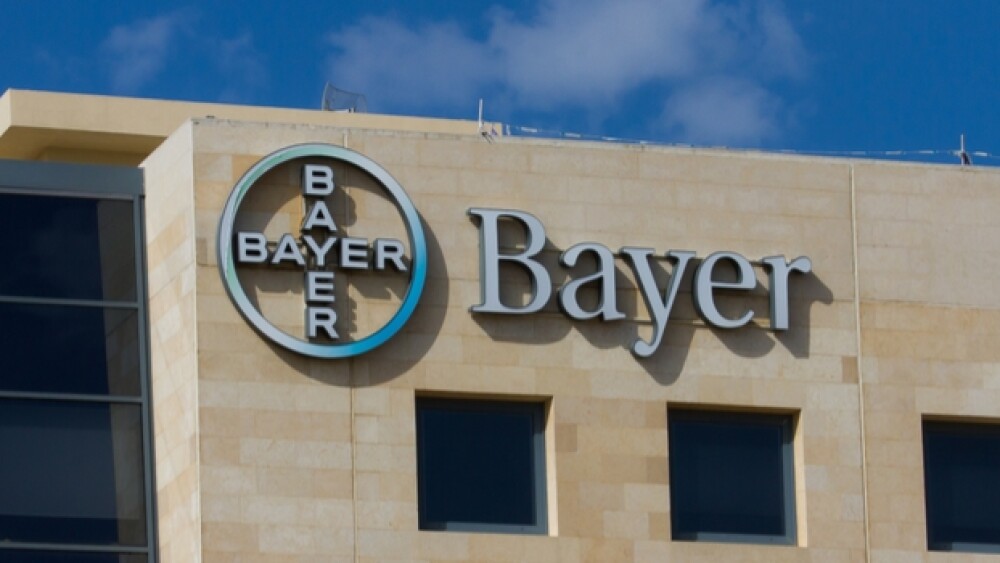The first project the companies aim to develop is a companion diagnostic for Vitrakvi, the only TRK inhibitor approved in the U.S. for patients with TRK fusion cancer across all solid tumors.
photobyphm / Shutterstock
Life sciences giant Bayer AG and Massachusetts-based Foundation Medicine forged a collaborative agreement to advance patient access to comprehensive genomic testing with the development of NGS-based companion diagnostics.
To keep in line with Bayer’s commitment to precision medicine, the agreement provides for collaboration across multiple oncology drug candidates and approved therapies developed by Bayer and also covers Foundation Medicine’s full portfolio of tests, including FoundationOneCDx, the first U.S. approved broad companion diagnostic for all solid tumors. FoundationOneCDx is a next-generation sequencing based in vitro diagnostic device for detection of substitutions, insertion and deletion alterations and copy number alterations in 324 genes and select gene rearrangements.
NGS based companion diagnostic tests aim to unlock molecular information from each patient’s tumor genome to guide treatment decisions for cancer therapies. The first project the companies aim to develop is a companion diagnostic for Vitrakvi(larotrectinib), the first and only TRK inhibitor approved in the U.S. for patients with TRK fusion cancer across all solid tumors. Vitrakavi, co-developed by Bayer and Loxo Oncology, was approved by the U.S. Food and Drug Administration in 2018 as a treatment of pediatric and adult patients who have solid tumors that have a neurotrophic receptor tyrosine kinase (NTRK) gene fusion without a known acquired resistance mutation, are metastatic or where surgical resection is likely to result in severe morbidity, and have no satisfactory alternative treatments or that have progressed following treatment.
Robert LaCaze, head of Bayer’s Oncology Strategic Business Unit, said the company is excited about the collaboration to develop new companion diagnostics and provide tools to move to a more personalized treatment approach.
“The development of a companion diagnostic for Vitrakvi, and our broader collaboration with Foundation Medicine is an important step forward toward expanding access to testing and identifying the right treatment options for patients with cancer,” LaCaze said in a statement.
Cindy Perettie, chief executive officer of Foundation Medicine, said the company is proud of the deal with Bayer to develop multiple companion diagnostics including a companion diagnostic for Vitrakvi.
“It is imperative that patients receive broad comprehensive genomic profiling at initial diagnosis of late-stage cancer to determine if they are eligible for these medicines,” she said in a statement.
Last year, Foundation Medicine and Swiss pharma giant Novartis forged a similar agreement to develop companion diagnostic tests for the Novartis portfolio of targeted oncology and immuno-oncology therapeutics.
Financial terms of the agreement were not disclosed.
For Bayer’s Vitrakavi, the company will present findings from new analyses and data for Vitrakvi in adult and pediatric patients with TRK fusion cancer with solid tumors, and new data in primary central nervous system tumors and brain metastases at the American Clinical Society of Oncology meeting later this week. The company will present data that shows the overall response rate was 04 percent in children with TRK fusion cancer and 68 percent in adults with the same kind of cancer.





